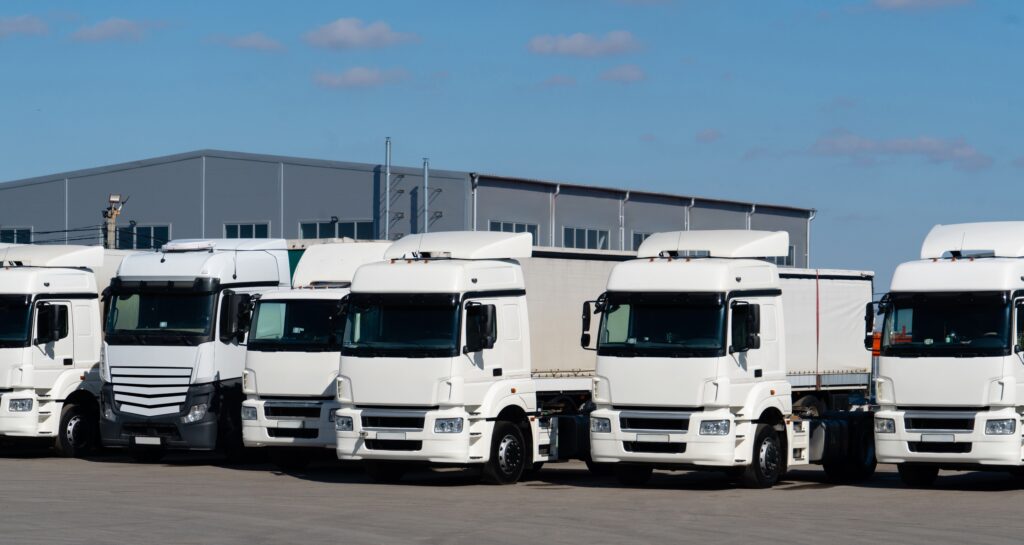Tow truck accidents typically happen when tow truck drivers and towing companies behave unreasonably or negligently under the circumstances. For example, a tow truck driver may speed, engage in distracted driving, or violate other rules of the road, while tow truck companies may fail to provide their drivers with the necessary training or fail to maintain their vehicles.
If you suffered injuries in a tow truck accident, a skilled Calgary truck accident lawyer can pursue the compensation you deserve. First, they will file a claim with the at-fault party’s insurance company and pursue a favourable settlement on your behalf. If the insurance company refuses to offer you fair compensation, then your truck accident lawyer can litigate your case in the court system to a successful resolution.
How Do Tow Truck Accidents Usually Happen?
Tow truck accidents can happen for many reasons, often because of negligence by either the tow truck driver or the towing company. When drivers or companies fail to follow safety protocols or traffic laws, they put others at risk.

- One common cause of tow truck accidents is driver fatigue. Tow truck drivers often work long hours, especially during emergencies or high-demand periods. Fatigue can slow reaction times and lead to poor decision-making, increasing the likelihood of an accident. If the driver is not given adequate breaks or rest periods, this may be considered negligence on the part of the trucking company.
- Another common cause is improper driver training. Tow truck drivers need to have specific skills to safely tow vehicles. If a driver has not been properly trained, they may not know how to secure the vehicle correctly, balance the load, or drive with the extra weight. Poorly secured loads can come loose and cause accidents – especially at high speeds or on busy roads.
- Negligence can also occur if the towing company fails to maintain its trucks. Tow trucks are heavy vehicles, and their brakes, tires, and other mechanical parts must be in good working order to handle the extra load of a towed vehicle. If a tow truck is not regularly inspected and repaired, it can malfunction, leading to dangerous situations on the road. For example, worn-out brakes may fail to stop the truck in time, or a tire blowout can cause the driver to lose control.
- Tow truck accidents may also happen if the driver is distracted or impaired. Distractions like cell phone use or even adjusting the radio can lead to accidents, as the driver may not be fully focused on the road. Similarly, driving under the influence of drugs or alcohol can impair judgment and reaction time, making tow truck accidents more likely.
- Lastly, speeding or reckless driving can contribute to accidents. Tow trucks are large and heavy, which means they require more time and space to stop or change lanes safely. If the driver is speeding or driving aggressively, it can lead to rear-end collisions, rollovers, or other accidents.
In all of these cases, the negligence of the driver or the towing company can cause serious accidents that harm others on the road.
Common Injuries in a Tow Truck Accident
Victims of tow truck accidents can suffer a range of serious injuries due to the size and weight of tow trucks. These vehicles are larger and heavier than most cars, so when an accident occurs, the impact can be severe. Below are some of the most common injuries that victims of tow truck accidents may experience.
- Whiplash is one of the most frequent injuries in tow truck accidents, especially in rear-end collisions. When a tow truck strikes another vehicle from behind, the sudden impact can cause the driver and passengers’ heads to jerk forward and then snap back. This violent motion can strain the neck muscles and ligaments, leading to pain, stiffness, and reduced mobility.
- Traumatic brain injuries (TBIs) are also common in tow truck accidents. These injuries occur when the brain is forcefully jolted during a collision, potentially causing a concussion or more serious damage. Symptoms of a TBI can range from headaches and dizziness to memory loss and long-term cognitive issues.
- Broken bones are another frequent result of tow truck accidents. The sheer force of the crash can lead to fractures in various parts of the body, such as arms, legs, ribs, or even the spine. In severe cases, these fractures may require surgery or long-term rehabilitation.
- Spinal cord injuries are some of the most serious injuries that can result from tow truck accidents. When the spine is damaged in a crash, it can lead to partial or complete paralysis, depending on the location and severity of the injury. These injuries can be life-altering, often requiring extensive medical care and permanent adjustments to daily life.
- Internal injuries can also occur in a tow truck accident, especially when the force of the collision causes damage to vital organs. The liver, spleen, or lungs can be punctured or bruised, leading to internal bleeding. Internal injuries are not always immediately apparent but can be life-threatening if not treated quickly.
- Lastly, emotional trauma is common among victims of tow truck accidents. Many individuals experience anxiety, depression, or post-traumatic stress disorder (PTSD) after being involved in such a traumatic event. These psychological injuries can take time to heal and often require therapy or counselling.
How to Prove a Tow Truck Accident Claim or Lawsuit
Proving a tow truck accident claim or lawsuit requires gathering strong evidence to show that the tow truck driver or the towing company was at fault for the crash. To win the case, you must demonstrate that the other party was negligent and that their negligence directly caused your injuries or damages. Below are the most important steps and types of evidence to use in these cases.

- One of the first things you’ll need to prove is negligence. This means showing that the tow truck driver or company failed to act in a safe and reasonable way. For example, if the driver was speeding, distracted, or fatigued, that may be considered negligence. Similarly, if the tow truck was not properly maintained or if the driver was not properly trained, the towing company can be found negligent.
- Police reports are a key type of evidence in these cases. After a tow truck accident, the police usually come to the scene and create a report. This report often includes important details about the accident, such as where it happened, who was involved, and whether anyone violated traffic laws. Police reports can provide a neutral, third-party account of the incident, which can strengthen your claim.
- Witness statements are also valuable. If anyone saw the tow truck accident happen, their testimony can help back up your version of events. Witnesses may have noticed details you missed, such as whether the tow truck driver was distracted or speeding. Obtaining contact information from witnesses at the scene is important so they can provide statements later.
- Another key form of evidence is photographs and videos from the accident scene. These can show damage to the vehicles, skid marks on the road, and weather or traffic conditions at the time of the crash. Many people carry smartphones, making it easier to capture this kind of evidence.
- In addition, medical records are vital for proving that your injuries resulted from the accident. Medical documentation shows the extent of your injuries, the treatment you received, and the extent of your pain and suffering. These records help prove that your injuries were serious and that you deserve compensation for them.
- Lastly, expert testimony can be important. In some cases, accident reconstruction experts can be brought in to explain how the accident happened and who was at fault.
By gathering strong evidence and showing negligence, you can build a solid case to prove your tow truck accident claim or lawsuit successfully.
Possible Litigation Options in a Tow Truck Accident Case
In tow truck accident cases, victims typically have several litigation options to pursue compensation for their injuries or damages. These options include settling the case, taking the case to trial, or pursuing alternative dispute resolution (ADR) methods like mediation or arbitration. Each option has its pros and cons, and the best choice often depends on the specific details of the case.
Settling the case is one of the most common outcomes in personal injury claims, including tow truck accidents. In a settlement, the parties agree on a compensation amount without going to trial. Settlements are often preferred because they are quicker and less costly than going to court. Both sides typically negotiate until they reach a fair agreement. For victims, settling can be less stressful than a trial, and they can receive their compensation sooner. However, settling means accepting a fixed amount, and once the agreement is signed, there’s no going back to ask for more money later – even if the injuries worsen.

If a settlement can’t be reached, the next option is to take the case to a jury trial. During the trial, a jury reviews the evidence, hears testimony from both sides and decides the outcome. Trials can lead to higher compensation if the court sides with the victim, but they are also riskier. Trials take much longer – sometimes months or even years – and the outcome is uncertain. Despite these risks, some victims choose to go to trial if the settlement offer is too low or if they want to hold the tow truck driver or company fully accountable in a public forum.
Lastly, victims can consider ADR methods like mediation or arbitration. Mediation involves both parties working with a neutral third party (the mediator) to reach an agreement. Arbitration is more formal, with an arbitrator acting like a judge who makes a binding decision. ADR can be quicker and more flexible than a trial but may limit the victim’s ability to appeal if the decision doesn’t go in their favour.
Choosing the right litigation option depends on the strength of the case, the willingness to negotiate, and the desire for a quicker resolution versus a potentially larger payout.
Recoverable Compensation in a Tow Truck Accident Case
Victims of tow truck accidents may be entitled to recover compensation for various damages. This compensation is designed to help the victim regain some sense of normalcy and cover various losses that result from the accident.
- One key claim for compensation is lost earnings. When someone suffers an injury in a tow truck accident, they may be unable to work for a period of time. This means they lose out on income during their recovery. Victims can seek compensation for the income they would have earned if they had not suffered an injury. This compensation can also cover future lost income if the victim’s injuries are severe enough to prevent them from returning to work in the same capacity.
- Loss of earning capacity is another damage that victims may be eligible to recover compensation for. This applies when injuries from the tow truck accident cause long-term or permanent damage, making it difficult or impossible for the victim to perform their job at the same level as before. If a tow truck accident victim can no longer work or must take a lower-paying job due to their injuries, they can seek compensation for the difference in their earning potential.
- Pain and suffering is another category of damages. Tow truck accidents can result in significant physical pain and emotional distress. Compensation for pain and suffering takes into account the severity of the victim’s injuries, the recovery process, and how much the victim’s life has been affected. While this damage can be harder to calculate, it is important for the long-term effect of the accident.
- Emotional distress is a separate but related damage. This applies to the mental and emotional effects the accident may have caused, such as anxiety, depression, or post-traumatic stress disorder (PTSD). Victims may experience ongoing mental health challenges as a result of the accident, which can require therapy or counselling. Emotional distress compensation acknowledges the psychological toll of the accident.
- Lastly, tow truck accident victims can recover compensation for lost quality of life. This applies when injuries from an accident prevent someone from participating in activities they once enjoyed, such as sports, hobbies, or social events.
These various forms of compensation can help tow truck accident victims recover not just financially but also emotionally and psychologically from the trauma they have endured.
Speak with an Experienced Tow Truck Accident Lawyer Right Away

If you or someone you love recently sustained injuries in a tow truck collision, you are not alone. A knowledgeable Calgary personal injury lawyer can promptly investigate the circumstances surrounding your accident by reviewing the police report and other documentation. They can then file a claim or lawsuit on your behalf and pursue the full compensation you deserve.
